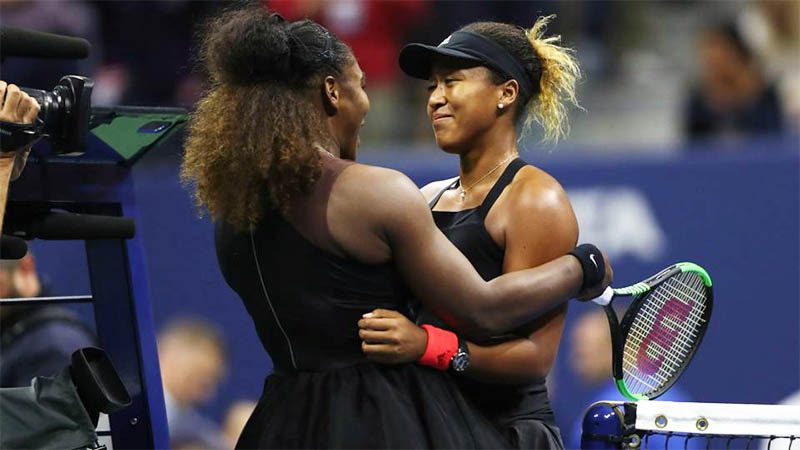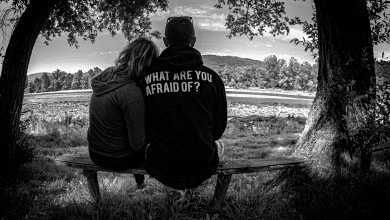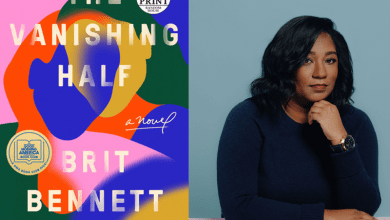I Now Believe in Black Girl Magic


I used to think the phrase Black Girl Magic was dangerous. As a grad student at an elite, predominantly white university, I’ve had firsthand experience with how words, even your own, become distorted and used against you. I feared that white folks would grab hold of Black Girl Magic and use it as another form of weaponized whiteness. I worried Black Girl Magic flirted too closely with tropes and stereotypes of black people’s superhuman nature. I was concerned that it served as a reinscription of the concept that black women are stronger than other women. That we could withstand the physical and emotional trauma that would break the other, more precious, more “feminine,” female. I feared it cosigned doctors’ choices to ignore the pain of black women as they heal, or that it influenced nurses’ decisions to dismiss a birthing mother’s knowledge of her own body, her own needs. That it cosigned unequal pay at the workplace, unequal treatment at the courthouse.
I saw Black Girl Magic as an extension of the magical Negro, the otherworldly being who is both nonhuman and beyond the human, but to be feared and cut down all the same. After all, we have seen too often how white fear translates into black death. I was afraid that in an attempt to uplift ourselves, we would feed into our own misinterpretation and forfeit our right to express our emotions – to cry, to laugh, to anger, to dream, to make mistakes, to want for more – to essentially be human.
But the events of the last few weeks (the debacle in the tennis world that paradoxically made us smile and snarl, and BET’s Black Girls Rock) have made me reconsider my position. After a near-death birthing experience, Serena Williams has once again poured her all into the game she loves, pushing hard to find balance in her roles as mother, wife, and tennis player. Serena has and continues to endure painstaking racism, sexism, and body shaming. Her passion is labeled as unwarranted aggression. Her appreciation of her body and her unashamed self-love is marked as hypersexuality. Her confidence is considered arrogant and unsportsmanlike.
These condemnations and criticisms are all in response to Venus and Serena’s blackening of tennis through their complete domination of the sport, one whose rules, practices, and behaviors are founded and policed by lily whiteness. But after more than 20 years on the court, the tennis world, realizing it cannot rid itself of the eminence of Serena, has resigned itself to policing, taking little bits out of the star and then labeling her unladylike when she painfully and rightfully cries foul. (In her book Citizen: An American Lyric, Claudia Rankine, details the numerous ways in which the tennis player has been cast as the angry black woman after enduring rampant racism and sexism.)
Each year presents its own racist and sexist struggles for the star athlete. This year includes an incident in May where she was banned from wearing a black one-piece. The French Tennis Federation President, Bernard Giudicelli, declared that the fashionable and functional Black Panther-esque suit that helped protect her from life-threatening blood clots had gone “too far,” accusing her of disrespecting the game. Serena accepted the revision to the dress code, despite it being directed at her, and essentially kept it moving.
Then fast forward to this year’s U.S. Open, where Serena was unrightfully fined for calling out the tennis official who accused her of cheating. He claimed that a thumbs-up from the stands equated to her receiving assistance from her coach. She called the official by name – Thief.
Despite her understandably growing disdain and overall lack of tolerance for the demands, restrictions, and limitations put on her person and her body, Williams, while angry, is not bitter. So, to watch her call out the official, one of the many representatives and enforcers of tennis’s whiteness, a “thief,” is to witness Black Girl Magic in movement. She stands up for herself as a player and a mother and demands an apology. The fact that she is unlikely to receive one does not deter her from demanding what is rightfully hers.
With the degradation and policing of her body and self-expression, the racist parodying of her embodiment and the consistent call, despite her being one of the greatest athletes of all time, to defend her position in a game that she has radically transformed year after year, it is surprising that all she broke was a racket. She lost the match.
Serena’s loss “ruined” the arc of the ideal comeback story – a tennis player who won the Australian Open whilst three months pregnant with her daughter returns practically a year later and wins her 24th Grand Slam, tying the Open-era record. While fans were rooting for this narrative, its disruption by Naomi Osaka was a welcome one. The 20-year-old Haitian and Japanese tennis player grew up idolizing Serena and was excited to compete against her hero. Her win was a landmark as she became the first Japanese and the first Haitian woman to win a Grand Slam. And then, while on-stage alongside her hero and runner-up, Serena, Osaka was booed. Slipping her shirt up over her nose, she cried into her collar. I imagine this moment was emotionally confusing. She had made history, played against her idol, won, and was now being booed. Serena put her arm around the rising star and politely instructed the audience to stop. Fresh from her sexist encounter with the tennis official, Serena is able to lay her emotions aside to support and uplift another young, black woman.


We can be upset at Serena’s loss and elated at Naomi’s historic win. There is space for our joy and pain to coexist. But a world committed to existing within a binary framework seeks to oversimplify, diminishing the complications in order to make it easier for the audience to consume and digest. Less work is involved. Serena is either the sore loser or the rightful winner. Either she is accurately depicted as a spoiled brat throwing a tantrum because she did not get her way, or her honor is defended by the crowd booing a 20-year-old girl during what is supposed to be one of the greatest moments of her life.
Black Girl Magic is Serena’s display of grace whilst in the midst of such an emotionally complex space. It is Osaka’s celebration of her blackness despite the media’s attempts to erase her Haitian roots. We can be disheartened by our trials and still push forward, taking the steps to realize our dreams. We can lament our losses, feel our pain, celebrate our victories, and laugh all at the same time. This is Black Girl Magic.
My conversion to Black Girl Magic was sealed upon watching BET’s Black Girls Rock! Not one big on awards shows, I am afraid to say that I cannot recall ever sitting down and watching this celebration of black women and girls. While all the performances, speeches, and audience takes contributed to my overall sense of belonging and joy, two moments, in particular, stood out – the acceptance speeches of activist Tarana Burke and producer/writer/actor Lena Waithe.
Tarana Burke, founder of the #MeToo movement, upon receiving the Community Change Agent Award, remarked:
“Black women are magic and we rock, mostly because we are resilient. We have a long history of taking what we have to make what we need. That’s how this movement was born… so much has happened, but what you all have solidified for me — and by you all, I mean black women — is that no one can take what was meant for us…it can be used by everybody and still be ours…don’t opt yourself out of what was started for you because the media isn’t acknowledging your hurt and your pain and your stories. They never have. This is your movement, too.”
Burke reminds us that just because someone “borrows” our healing practices does not mean that it is still not a soothing balm for us. She holds space for both the hurt caused by the cultural appropriation and a celebration of its healing power. Her complexity, her simultaneous acceptance and defiance, is Black Girl Magic. My previous concerns with the phrase being taken up by white folks and used against us were completely shattered with Burke’s speech.
https://www.youtube.com/watch?v=dlI2hl1qbog
Lena Waithe, who received the Shot Caller Award, took her time on stage to explain why she cut her hair:
I spoke about cutting off my hair because I was holding onto it. I was holding onto a piece of myself that felt feminine. And that piece of femininity made people feel comfortable. But then I came to the realization that that’s not my job. I don’t have to make people feel comfortable with the way I choose to walk in the world. So I decided to get free. And tonight, I wanted to speak to you about getting free. For me, it was hair. For you, it might be something else. But whatever it is, I wanna encourage you to stop letting it hold you captive. See– You might need to get free of a relationship that’s not serving you. I implore you to get free of that. I want you to get free of your narrative. See, sometimes we’re so used to things being bad all the time that when good things come, we can’t embrace it. Get free of that. And last, but not least. Let’s get free of the idea that we can’t go after our dreams because of how we look, where we come from, who we love, or how old we are. We all have gifts. We can either lock into the gifts or act like they don’t exist. You can’t live your dream if you never go after it. So, I wanna thank Beverly Bond and the entire team at Black Girls Rock! and everybody at BET. I really wanna thank y’all for reminding folks that gay black girls rock, too.
https://www.youtube.com/watch?v=Dv0235YlgdM
Waithe’s personal story of breaking through the bondage of people-pleasing, followed by her encouraging others to do the same, is a much-needed call. At a time where persons of color, especially women, are held responsible for the actions of others and crushed under the pressure to adhere to impossible standards of beauty as they compare their lives to the constructed ones on social media, Waithe’s message is one of hope and authenticity. Her heartfelt declaration that “Black gay girls, rock, too!” reminds us of the beauty in our diversity as women. Her willingness to be boldly vulnerable so that we, too, might experience the joy that comes with breaking through chains and chasing our dreams is Black Girl Magic.
These powerful black women have shown me all the ways in which I misunderstood Black Girl Magic. Serena, Naomi, Tarana, and Lena have shown me that Black Girl Magic is unconcerned with the white gaze. It is not preoccupied with the ways it can be misconstrued because its inevitable, continuous misinterpretation does not diminish its power. I am grateful and forever indebted to these women whose dynamic displays of the complexities of black womanhood have shown me that above all else, Black Girl Magic is real.






